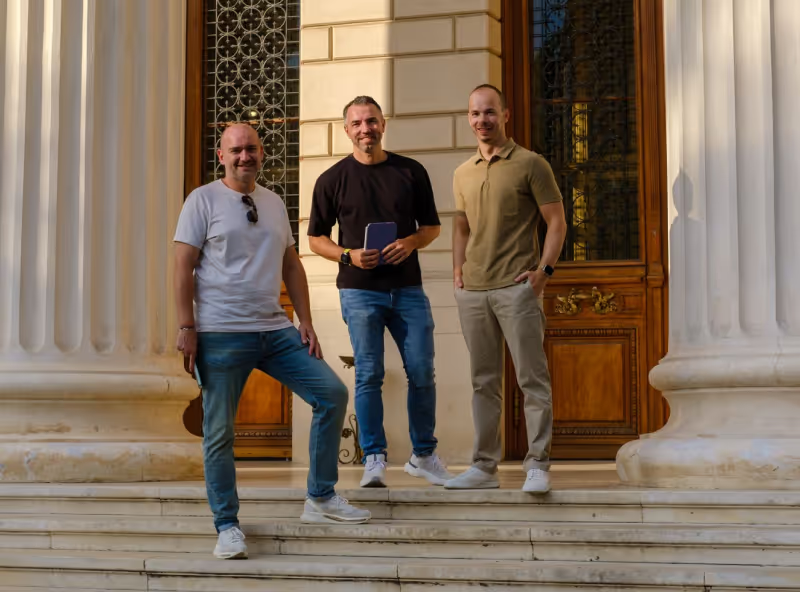Medicai reports strong early feedback from its first actions in the US market, where clinicians have expressed a clear need for a modern imaging and collaboration solution. The platform aims to improve the journey of patients with severe or rare diseases by connecting primary care, imaging centers, labs, and specialists through digital medical corridors.
July 6, 2022


The Romanian MedTech startup Medicai targets markets in Western Europe and the US and internationalization is the next strategic expansion step for Medicai to provide solutions for the healthcare system in other global markets.
The company aims to access more customers and projects in different geographic regions. The company is initially focusing its efforts on the US market and target markets in Western Europe. Through the new partnerships, Medicai already has access to some big software companies, ecosystems and benefits from the support of sales teams, who will assist in growing and managing demand for Medicai’s services.
“We have managed to build up vast expertise in a short-term period, so we already have many implementations in key areas such as triage, diagnosis, monitoring, case management, second opinion, and medical tourism. Feedback is unexpectedly good from the first actions on the US market! We have started discussions for some pilot projects and expect to have accelerated growth in a few months. We had conversations in which doctors at very large centers in the USA told us they were looking for a solution to this problem but gave up because no one could offer it to them,” said Mircea Popa, CEO of Medicai.
Insights from American market
The founders of Medicai take the US market very seriously to improve the “journey” of a patient with severe or rare diseases. Here are two significant issues where Medicai can have a decisive impact.
The foremost is that patients with rare diseases and cancer get diagnosed too late in too many cases. The second issue is that it takes too long for the patient to start treatment, even when there is a suspicion or diagnosis. Late diagnosis occurs because the patient does not know where to go, the “specialists,” who are rare for these diseases, are never close enough, and family doctors do not have resources for these patients. Medicai connects these players and can create digital “corridors” where information can flow instantly between primary care physicians, imaging centers, labs, and specialists to improve screening and diagnosis.
The second problem of the patient’s long journey arises from a need to coordinate the team of specialists who treat the patient and often also because of the bureaucracy involved. The first step is to find the right team. The second step is for each of those teams to evaluate the case from the specialty’s point of view and establish the treatment plan. Today, these things happen with the speed of a CD, and we aim to connect through Medicai these specialists, the data from their centers, and the patients they work with. The goal is that everything does not necessarily need to happen offline, to be able to happen online. And I’m 110% sure we don’t necessarily need to take the CD to the hospitals in the car.
Digitisation of the healthcare system
Powered by next-generation technologies such as cloud storage and artificial intelligence, Medicai’s imaging platform enables doctors in hospitals and clinics to collaborate and communicate remotely with their patients more quickly.
When several doctors – from the same or related specialties – need to collaborate in diagnosing and treating a case, they can provide colleagues with access to their archives quickly and easily. Specifically, in the Medicai platform, doctors can create online archives of their patients’ imaging investigations. These facilitate collaboration between doctors, even from different clinics or geographical regions, speed up the diagnosis and treatment of medical cases, and save patients from bringing in investigations on electronic media that are susceptible to damage and can sometimes be incompatible with reading.
Medicai aims to solve the problem of the low number of radiologists by efficiently distributing and managing cases among them. Medicai also interconnects case data, otherwise locked up in clinics and disparate, solves the problem of storing imaging data files, often too large even to be previewed by traditional methods. It aims to relieve clinics and hospitals of the burden of maintaining their servers to store this data and adequately managing access to users’ data, whether doctors or patients.
Medicai’s business has generated over 30 clients – both private and state hospitals and clinics, including Marius Nasta Hospital, St. Mary’s Hospital, Monza Hospital, Brain Institute, and Neuroaxis Clinic. Medicai raised from investors like ROCA X, DMoonshot, and Cleverage VC a total investment of one million euros in the last two years.
If you're interested in publishing news about Medicai, send us a quick email:
Medicai’s cloud-native platform connects primary care physicians, imaging centers, labs, and specialists in a unified digital workflow. From faster access to imaging to structured reporting, AI-assisted tools, and multi-location collaboration, Medicai helps healthcare providers streamline diagnosis, accelerate treatment decisions, and eliminate the limitations of CD-based workflows. Explore how Medicai can modernize your imaging infrastructure.